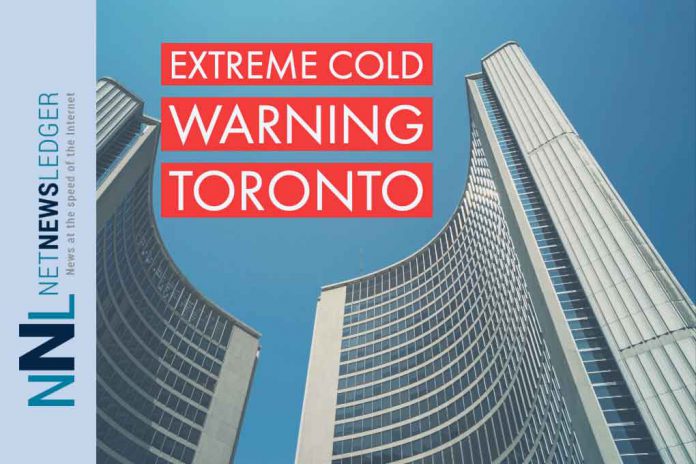TORONTO – The City of Toronto is bracing for colder weather. An Extreme Cold Alert has been declared. While people in Northern Ontario might find it funny that Toronto does this, it is a move that engages resources for people who are less capable, including homeless, elderly and others.
Based on Environment and Climate Change Canada’s forecast, Dr. Eileen de Villa, Toronto’s Medical Officer of Health, has issued an Extreme Cold Weather Alert today for Toronto in anticipation of colder weather conditions within the next 24 hours or longer. The Extreme Cold Weather Alert will be in effect until further notice.
Extreme Cold Weather Alerts activate local services that focus on getting and keeping vulnerable residents inside. A warming centre is open at Metro Hall by 7 p.m. the day an alert is called, and remains open continuously until noon on the day an alert is terminated. Other services include notification to community agencies to relax any service restrictions, availability of transit tokens in some drop-ins, and additional overnight street outreach.
Throughout the year, 24-hour respite sites provide meals, places to rest, and service referrals at locations across the city. People can call 311 for locations and to connect to Central Intake for a referral. Homeless Help lists site information at http://www.toronto.ca/homelesshelp.
The City asks that residents help vulnerable people by calling 311 if there is a need for street outreach assistance. Call 911 if the situation is an emergency.
Extreme Cold Weather Alerts are issued when the temperature in the daily forecast suggests temperatures will reach approximately -15 degrees Celsius or colder, or when the wind chill is forecast to reach -20 or colder. The Medical Officer of Health may also consider other weather-related factors when issuing Extreme Cold Weather Alerts.
Exposure to cold weather can be harmful to your health. Hypothermia occurs when the body’s core temperature drops below 35 degrees Celsius and can have severe consequences, including organ failure and death. Frostbite can also occur in cold weather when skin freezes and, in severe cases, can lead to amputation when deeper tissues freeze.
Those most at risk of cold-related illness are people experiencing homelessness or those under-housed, those who work outdoors, people with a pre-existing heart condition or respiratory illness, elderly people, infants, and young children. People with heart problems can experience worsening of their condition up to several days after cold weather occurs.
During an Extreme Cold Weather Alert, members of the public are encouraged to take the following precautions:
- Check the weather report before going outside.
- Dress in layers, making sure your outer layer is windproof, and cover exposed skin.
- Wear a hat, warm mittens or gloves, and warm boots.
- Stay dry. Your risk of hypothermia is much greater if you are wet.
- Choose wool or synthetic fabrics for your clothes instead of cotton, because cotton absorbs and holds moisture, no longer keeping the wearer warm.
- Seek shelter if you normally spend long periods outside. Depending on the wind chill, exposed skin can freeze in minutes.
- Drink warm fluids other than alcohol.
- Warm-up by taking regular breaks in heated buildings when enjoying winter activities outside.
- Consider rescheduling outdoor activities, or limiting time outdoors, during colder temperatures, especially if it’s windy.
- Heat your home to at least 21 degrees Celsius if infants or elderly people are present.
- Call or visit vulnerable friends, neighbours, and family to ensure they are not experiencing any difficulties related to the weather.
More information and tips for staying warm during cold weather are available at https://www.toronto.ca/community-people/health-wellness-care/health-programs-advice/extreme-cold-weather/.
Information to help residents prepare for extreme weather and weatherproof their homes is available at https://www.toronto.ca/extremeweatherready.






